Publications
Articles, publications, books, tools and multimedia features from the U.S. Institute of Peace provide the latest news, analysis, research findings, practitioner guides and reports, all related to the conflict zones and issues that are at the center of the Institute’s work to prevent and reduce violent conflict.

Is China Eyeing a Second Military Base in Africa?
For over three decades, every Chinese foreign minister’s first overseas trip of the year has been to Africa. This year continued the tradition with China’s foreign minister, Wang Yi, visiting Egypt, Tunisia, Togo and Côte d'Ivoire. Notably, every one of these countries is coastal. And yet, at a time of continued speculation over China’s next military installation in Africa, none of these countries has featured prominently as potential locations in previous analyses. We might, therefore, reasonably ask what China’s current considerations are around basing in Africa. Faced with an increasingly multipolar and assertive Africa at a time of domestic economic challenge, however, China’s long-term strategy remains unclear.

Coastal West Africa Senior Study Group Final Report
The countries of Coastal West Africa are currently facing significant challenges to peace and security as extremist violence spills over from the neighboring Sahel region. Attacks in 2022 in the northern parts of Benin, Côte d’Ivoire, and Togo illustrate the immediacy and gravity of the threat, and governments across the subregion are grappling with protecting fragile communities in the north, addressing porous borders that facilitate attacks from neighboring states, and building the capacity of security forces to address the threat.
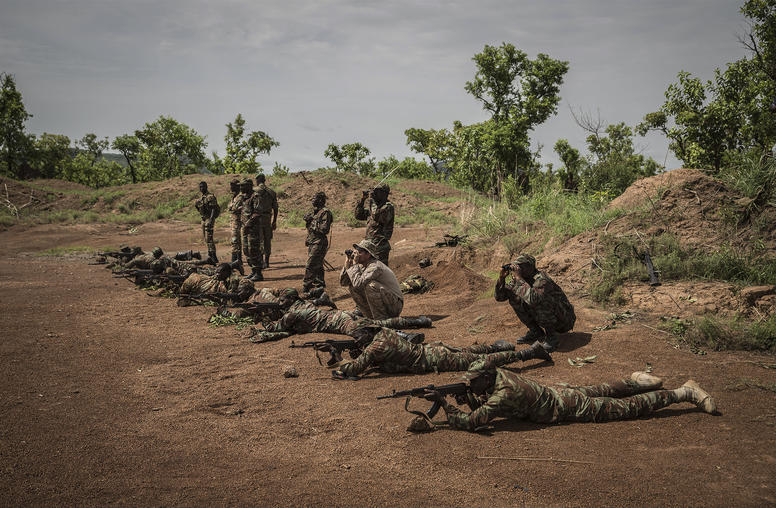
How to Advance Peace and Stability in Coastal West Africa
The U.S. government has identified stability in Coastal West Africa as a foreign policy priority, engaging five countries in particular — Benin, Côte d’Ivoire, Ghana, Guinea, and Togo — through its Strategy to Prevent Conflict and Promote Stability, which was adopted in December 2021. The strategy reflects the U.S. government’s consideration of the five countries as strategic focal points in the fight against transnational terrorism and violent extremism emanating from the neighboring Sahel region.

A New U.S. Plan to Avert Wider Conflicts in West Africa
The United States is setting a new priority on building peace in five West African nations threatened by domestic crises and by violence that is spreading from the neighboring Sahel region. The White House named those countries among others in which to launch a new U.S. strategy to prevent violent conflicts in unstable regions. This choice signaled that stability in coastal West Africa is a vital U.S. interest — and that these five countries, while in varied stages of building democracies, can strengthen democracy and stability with more focused, long-term U.S. support. A broad consultation of scholarly and policy experts on coastal West Africa is buttressing that idea.
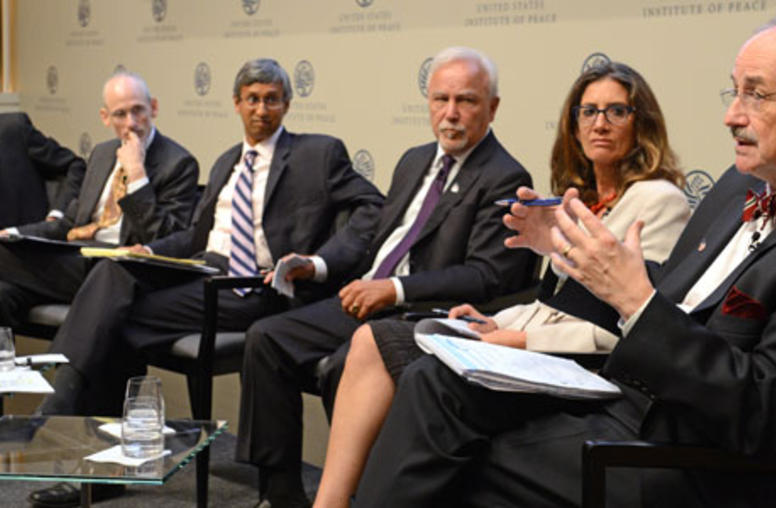
USIP Hosts International Gathering on Water Security and Conflict Prevention
Assuring access to water of adequate quantity and quality in the face of increasing challenges poses a growing risk of future conflicts. But in preventing any outbreak of conflict, better water management can play a vital role in building peace and cooperation, a variety of officials and specialists said at the Water Security and Conflict Prevention Summit held at the U.S. Institute of Peace (USIP) on September 10.
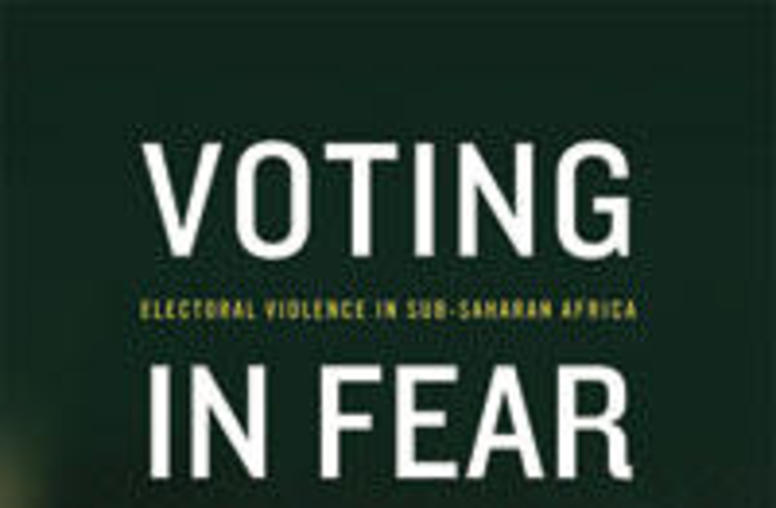
Voting in Fear
In Voting in Fear, nine contributors offer pioneering work on the scope and nature of electoral violence in Africa; investigate the forms electoral violence takes; and analyze the factors that precipitate, reduce, and prevent violence. The book breaks new ground with findings from the only known dataset of electoral violence in sub-Saharan Africa, spanning 1990 to 2008. Specific case studies of electoral violence in countries such as Ghana, Kenya, and Nigeria provide the context to further un...
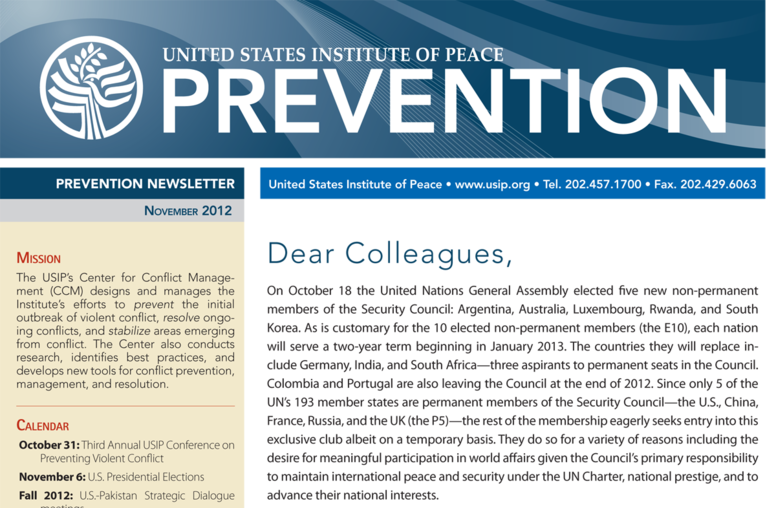
USIP Prevention Newsletter - November 2012
The November 2012 Prevention Newsletter features a spotlight on the Network of Iraqi Facilitators (NIF) in Ninewa, Iraq: A team of three conflict resolution professionals from the NIF took the initiative to bring sectarian leaders to the table to negotiate a peaceful end to the cycle of violence plaguing Ninewa.
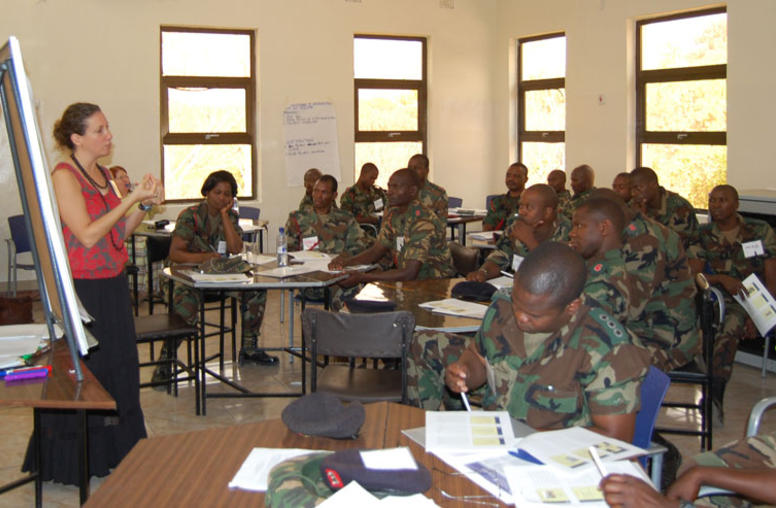
USIP’s Growing Training of African Peacekeepers Set to Continue
The U.S. Institute of Peace (USIP) has been expanding its training of African peacekeepers in 2012 above that in past years, and USIP’s unique role in this State Department-led program will be continuing at this new, faster pace.
Eye on Sub-Saharan Africa
With its research, analysis and field work, USIP is on the ground in key African nations working to prevent conflicts from turning deadly and to build local capacity to stop disputes from escalating into violent conflict.
Senior Official to Discuss U.N. Policies at USIP
The need for collaborative, multilateral action at the United Nations and on global problems is growing, but so are the budgetary pressures on the U.S. government’s foreign affairs spending. That collision of factors provides the context for a scene-setting address at the United States Institute of Peace (USIP) by Esther Brimmer, the assistant secretary of State for International Organization Affairs.